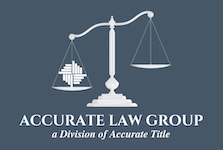 No closing cost loans are typically sought after by borrowers with few money to bring to closing. The term is somewhat misleading as there are always closing costs. However, the way those costs are regained by a lender may be accomplished in different ways. The following is an overview of NH no closing cost loans, a few important facts, and how it compares to other types of programs.
No closing cost loans are typically sought after by borrowers with few money to bring to closing. The term is somewhat misleading as there are always closing costs. However, the way those costs are regained by a lender may be accomplished in different ways. The following is an overview of NH no closing cost loans, a few important facts, and how it compares to other types of programs.
What Are No Closing Cost Loans
Fees apply to all loans because lenders must cover the cost of processing loans, compensating brokers, etc. In a typical loan, the specific charges are outlined and itemized as closing costs. However, not all borrowers have the money to pay these fees up-front. No closing cost loans were created to address this situation.
There are two different ways that mortgage companies can provide no closing cost loans. One method is to apply a higher interest rate, which allows them to recover the fees over time. The other is to include the closing fees into the amount of the mortgage.
Advantages And Disadvantages
Deciding whether to select no closing cost loans can depend on several factors. If you expect to refinance your loan in a short period of time, then it can be a feasible option since the higher interest rate would be in effect for only a short period of time. This can be applicable during times where interest rates are high but are expected to lower in the near future or if you expect to own a home for a short length of time. Alternatively, if you intend to hold a loan for many years, then the cost of the increased interest rate over the years will be significantly higher than simply paying the closing costs now.
It is important to mention that no closing costs may NOT mean that cash is not be required at closing. Closing costs really only refer to only particular fees. Other amounts due, like escrows, are actually pre-paid items. They are not classified as closing costs and will therefore still be required at closing.
NH No Closing Cost Loans
NH no closing cost loans may or may not be the optimal solution for your particular situation. To make an educated decision about what loan program is best for you, consider the interest rate and fees for each loan. Also think about how long you expect to keep the mortgage and the financial cost over time. Most of this information may be obtained by requesting a good faith estimate from your mortgage company.

